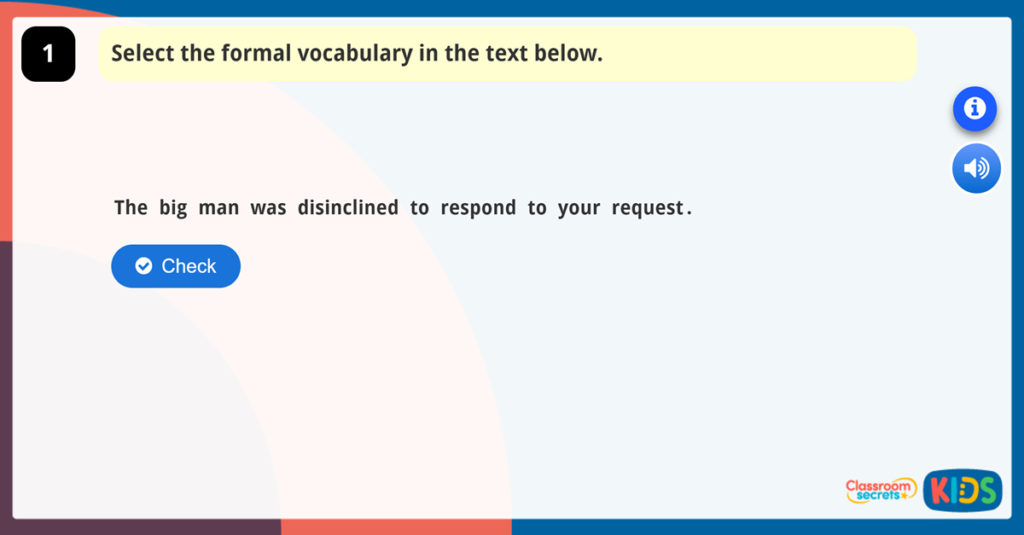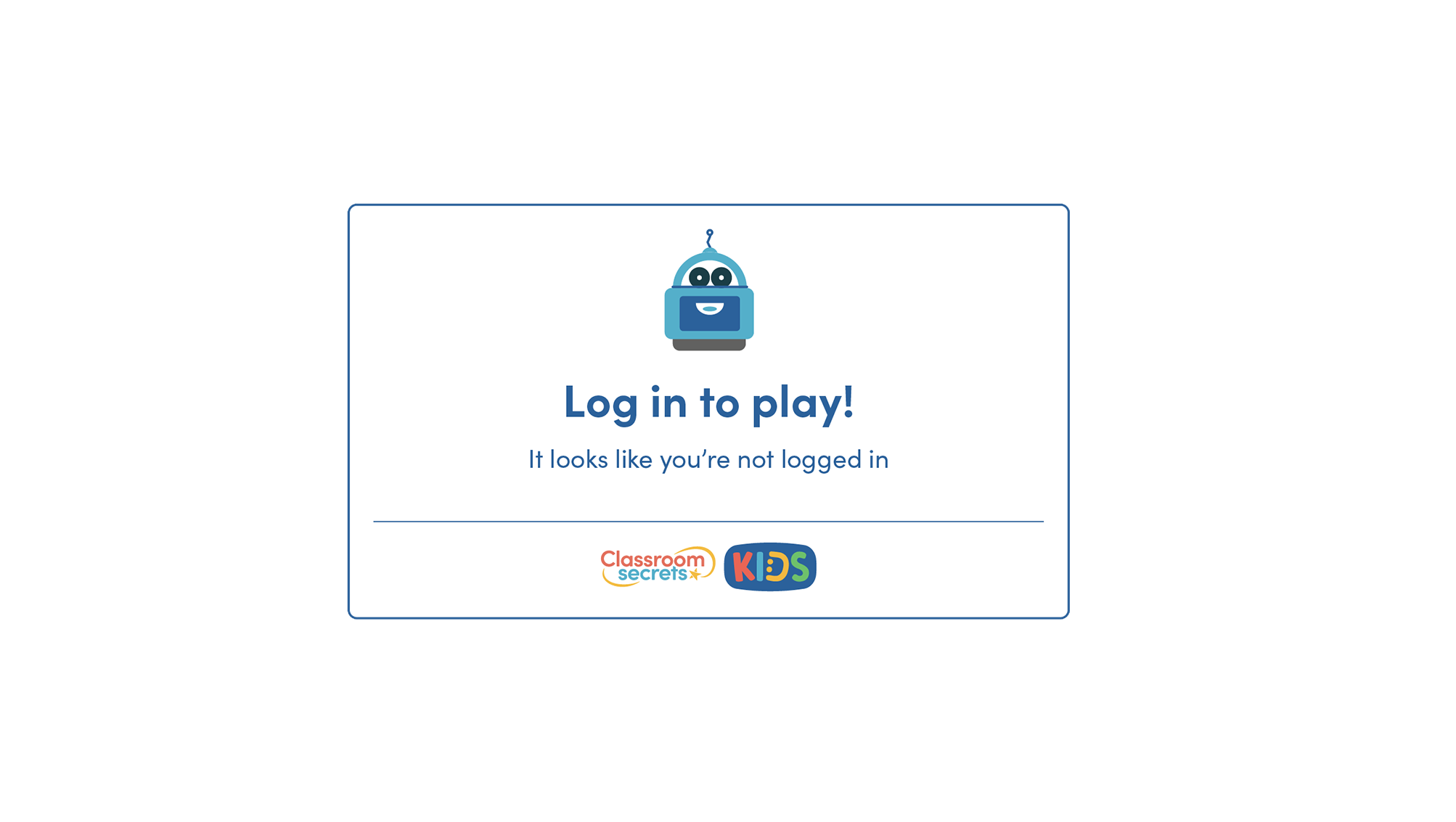Year 6 Formal and Informal Vocabulary and Styles
Teacher Specific Information
This Year 6 Formal and Informal Vocabulary and Styles activity comprises questions designed to test pupils’ understanding of formal and informal vocabulary.
Pupils will identify formal words in text, match formal words to an informal synonym, finish sentences with formal vocabulary, determine whether sentences are formal or informal and choose the most formal word to complete a sentence.
This activity is linked to the Classroom Secrets Year 6 GPS scheme of work.
Questions in this activity are based on the content in Spring Block 3 Steps 4 and 5 on the Classroom Secrets website, where you can find more resources.
National Curriculum Objectives:
English Year 6: (6G7.4) Recognising vocabulary and structures that are appropriate for formal speech and writing, including subjunctive forms
English Year 6: (6G7.2) The difference between vocabulary typical of informal speech and vocabulary appropriate for formal speech and writing [for example, find out – discover; ask for – request; go in – enter]
English Year 6: (6G7.3) The difference between structures typical of informal speech and structures appropriate for formal speech and writing [for example, the use of question tags: He’s your friend, isn’t he?, or the use of subjunctive forms such as If I were or Were they to come in some very formal writing and speech]








